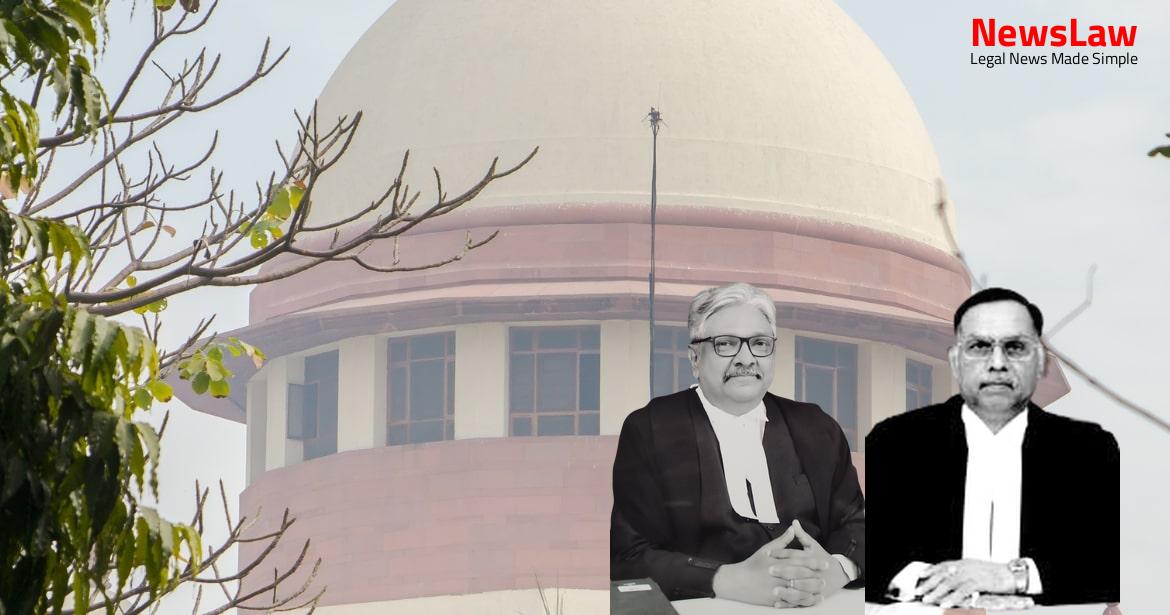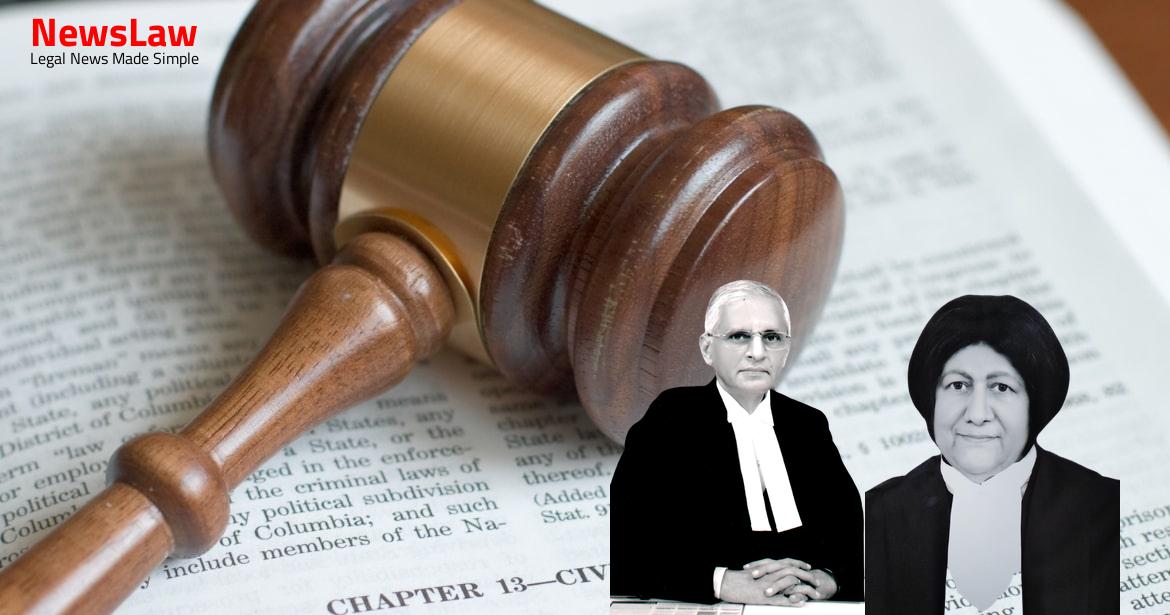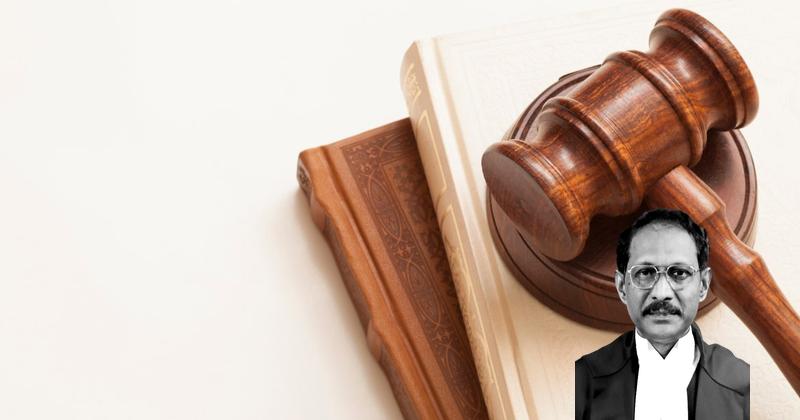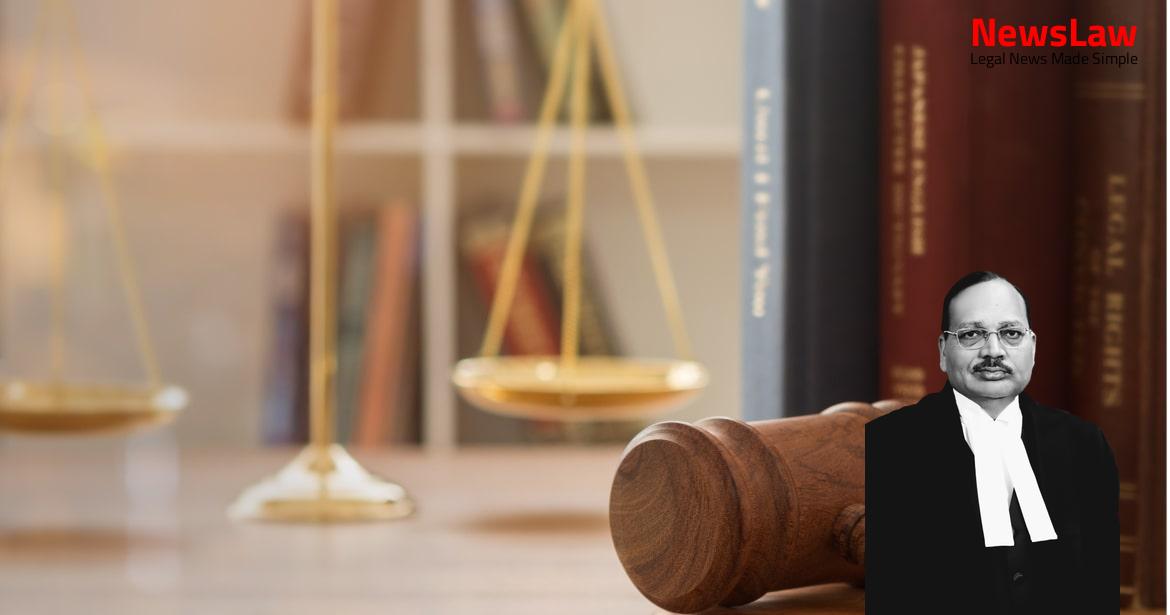Exploring the intricacies of the legal system, the case at hand delves into conflicting decrees and abatement. As the Supreme Court of India navigates through the complexity of the legal landscape, the quest for justice unfolds. Follow the legal saga involving distinct claims and the implications of abatement in this intriguing legal battle.
Facts
- The appellant vendees purchased the property for Rs. 22,750/- collectively.
- The sale deed indicated the sale of the entire set of properties enjoyed by two sets of vendees in equal shares.
- An attempt under Order XXII Rule 2 to argue joint Hindu family status of the appellants was rejected as the appellants did not constitute a Joint Hindu Family.
- The appellants paid half of the amount each, totaling Rs. 11,375/- each.
- Many reversioners who were originally defendants were transposed as plaintiffs in the case.
- The appeal was relisted on 10.09.2001, during which the second plaintiff/second appellant passed away.
- The first appellant also passed away during the appeal, leading to his part abating.
- The son of the first appellant had already been impleaded upon the death of his father.
- The suit initially filed by the first and second plaintiffs was for their one-twelfth share.
- The LRs of the second appellant were not brought on record, causing the appeal to abate qua the second appellant.
- High Court held that the appeal did not survive due to abatement.
- High Court concluded that the entire appeal would abate as a result of the joint decree.
- Order XXII Rule 2 applies when there are multiple plaintiffs or defendants and one of them dies.
- Court cited the case of Ram Sarup vs Munshi & Ors. where the appeal abated as a whole.
- Attempt to apply Order XLI Rule 4 was unsuccessful as it only allows one of the plaintiffs/defendants to file an appeal.
- Defendants could not be ejected due to a deceased-appellant having joint interest in property.
- In the case of Harihar Prasad Singh vs Balmiki Prasad Singh, conflicting decrees would arise if the appeal were allowed.
Also Read: Entitlement to Back Wages: Upholding Justice
Issue
- The issue regarding the availability of the right of preemption despite the repeal of the Punjab Alienation of Land Act, 1900 was considered.
- The right to sue does not survive to the remaining plaintiffs/appellants as per Order XXII Rule 3 of the law.
- If one of the plaintiffs dies without their legal representatives being brought on record, the suit or appeal may abate as far as that specific plaintiff is concerned, but not as regards the other plaintiffs or appellants.
Also Read: Remand Order Upheld: Legal Analysis in The Case of The National Investigation Agency vs. The State
Arguments
- The appellant argued that the appeal should not be considered abated due to the death of Plaintiff No.29 in 1953.
- The appellant mentioned that despite Plaintiff No.29’s death, the respondents did not oppose the prosecution of the appeal.
- It was noted that the second appellant had passed away, and the appellant could have filed a separate suit seeking the same relief.
- Permission was granted for the appellant to continue prosecuting the appeal despite the death of Plaintiff No.29 and the second appellant.
- The High Court had previously granted permission to the appellant to prosecute the appeal, even though the legal representatives of the second appellant did not show interest.
- The matter was adjourned to enable the appellant’s counsel to take necessary steps in light of the death of the second appellant.
- Estoppel will not operate against the appeal being dismissed on the death of the second appellant.
- There may be a conflict of decrees if the High Court were to allow the appeal, as the trial Court had already passed a decree upholding the adoption.
- Referring to the judgment in Sardar Amarjit Singh Kalra (Dead) BY LRS. and Others v. Pramod Gupta (Smt) (D) BY LRS. And Others; 2003 (3) SCC 272.
- The order passed by the High Court will not act as an estoppel preventing the respondents from arguing that the appeal has abated as a whole.
Also Read: Supreme Court Ruling on Recruitment Rules Challenge
Analysis
- The courts will not proceed with an appeal in certain circumstances which may lead to conflicting decrees.
- The alleged fear of conflicting decrees resulting from the appeals has no basis in law.
- Procedure should not hinder the cause of justice.
- The court can proceed with the appeal involving co-respondents other than the deceased respondent.
- The court should focus on facilitating substantial justice in procedural matters.
- Orders and judgments can be passed separately for distinct claims even if heard together for convenience.
- The abatement of an appeal does not always affect all parties involved in the case.
- Order XXII Rule 3 of the Civil Procedure Code applies to appeals filed under Order 41.
- Order XXII Rule 3 states that when one of multiple plaintiffs dies and the right to sue does not solely pass to the surviving plaintiff(s), the legal representative of the deceased plaintiff can be substituted upon application to the Court.
- The Court can then proceed with the suit after the substitution of the legal representatives.
- If no application is made within the specified time, the suit will abate.
- This case involved Order XXII Rule 4 which deals with the procedure in case of the death of one of several defendants or the sole defendant.
- Under Order XXII Rule 4, the legal representative of the deceased defendant can be made a party upon application to the Court and can make appropriate defenses in that capacity.
- Decree passed by the court in cases where plaintiffs or appellants or petitioners have distinct, separate and independent rights should be viewed as a combination of several decrees in favor of one or the other parties.
- Similar position should be applicable for defendants or respondents with similar rights contesting claims against them.
- Claims of more than one party in a single proceeding should be considered as a combination of several decrees and not as a joint and inseverable decree.
- Similar or identical claims by more than one party should not automatically be treated as joint claims.
- Decree is considered joint and inseverable, leading to abatement or dismissal of the entire appeal, if it cannot be proceeded with after the death of one party, whereas in case of joint and several or separable decree, the proceedings can continue against the remaining parties.
- Absence of provision for abatement of appeal against other respondents in case of abatement of appeal against a deceased respondent as per the Code.
- The impact of the death of the appellant’s late brother on the proceedings is due to the incompatibility of a final decree with the decree sought by the appellant.
- The appellant’s permission to continue the appeal through an interlocutory order does not resolve the legal issue caused by the inconsistent decrees resulting from the failure to substitute a legal representative for the late brother.
- The appeal filed by the late brother abates, creating a legal obstacle to the new decree being sought by the appellant.
Decision
- The appellant’s appeal to invalidate the adoption was dismissed by the High Court.
- The passing of the decree by the High Court would declare the adoption as invalid.
- If no application is made within the specified time limit, the suit abates against the deceased defendant.
Case Title: HEMAREDDI (D) THROUGH LRS. Vs. RAMACHANDRA YALLAPPA HOSMANI .
Case Number: C.A. No.-004103-004103 / 2008



